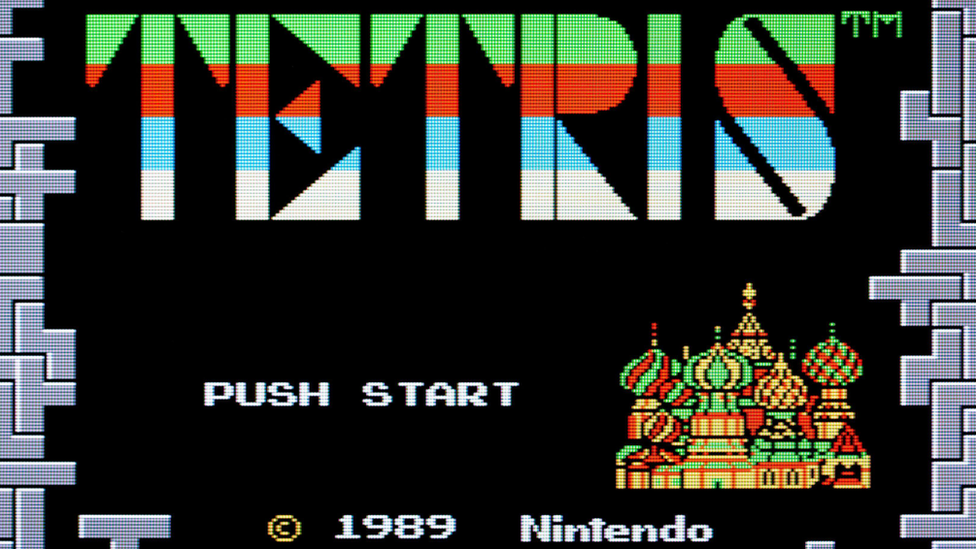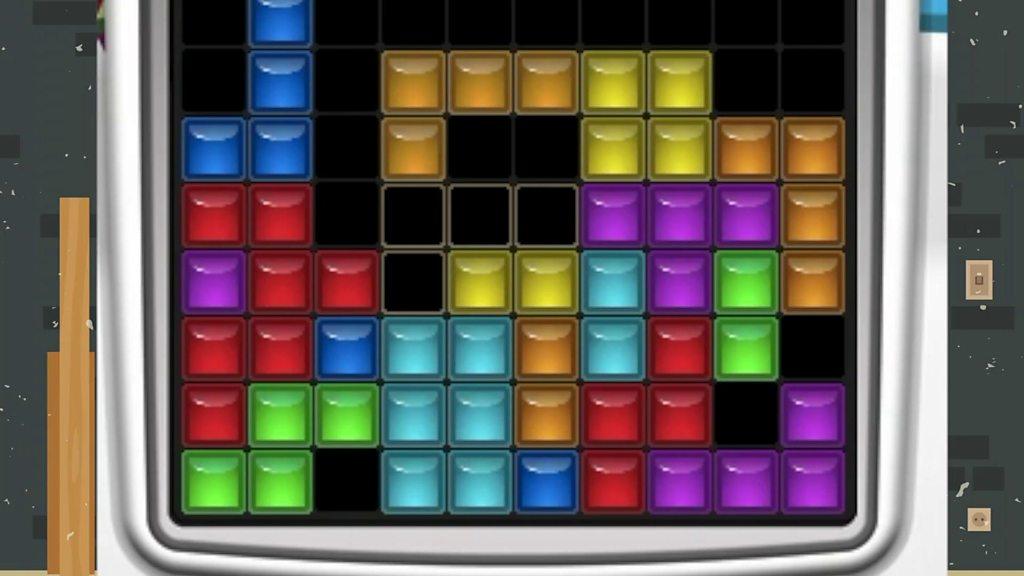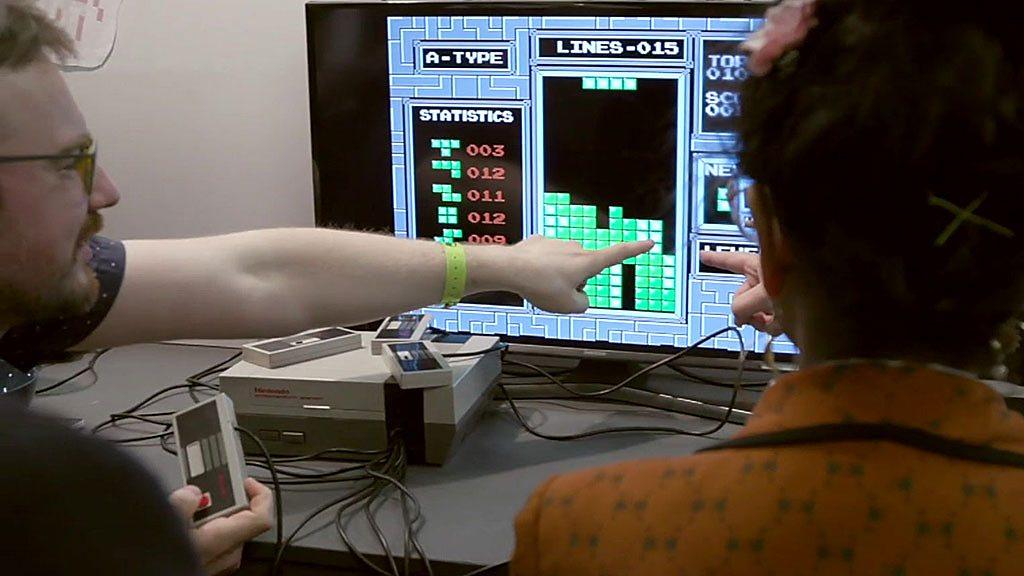Tetris: US teenager claims to be first to beat video game
- Published
- comments

Willis Gibson's feat of gaming came after he placed third at the 2023 Classic Tetris World Championships
An Oklahoma teenager is believed to have become the first human player to beat Nintendo's classic video game Tetris, 34 years after its release.
Willis Gibson posted a video on his YouTube channel of the moment he reached level 157, causing the game to crash.
The 13-year-old fell back into his chair - declaring: "I'm going to pass out, I can't feel my fingers."
It only took him 38 minutes to beat the game.
Remarkably, until a few years ago, players believed it was only possible to play up to level 29.
The popular video game - which sees players arrange falling blocks into perfect horizontal lines at increasing speeds - was originally created in 1984 by Soviet engineer Alexey Pajitnov, and gained popularity after its debut on the Nintendo Entertainment System (NES) and Nintendo's Game Boy handheld console in 1989.
Today, the game can be played across a range of consoles and platforms, including mobile phones.

Tetris was one of the best-selling games for the NES console and Nintendo's Game Boy.
In 2010, professional competitive gamer Thor Aackerlund managed to reach level 30 by using a technique called hypertapping, where a player vibrates their fingers in a way which moves the controller faster than the in-game speed.
This led to other gamers adopting hypertapping and other techniques to see how far they could go - but as of last month, only AI had been able to reach the game's true kill screen.
A kill screen happens when a player reaches a level which causes the game to crash.
At the end of his 38-minute run, Willis' screen crashes and blocks no longer come down as he beats the game.
The teenager - who goes by the name of Blue Scuti on YouTube - has played the game since he was 11, and has competed in several gaming tournaments.
"When I started playing this game I never expected to ever crash the game, or beat it," he wrote on his YouTube channel.
As well as beating the game, Willis says he also broke the overall score and three other Tetris world records.
Other gamers are now trying to beat the 13-year-old's records, with many documenting their attempts on social media and video streaming websites.
Related topics
- Published12 April 2019

- Published22 October 2018

- Published21 May 2019

- Published28 March 2017
